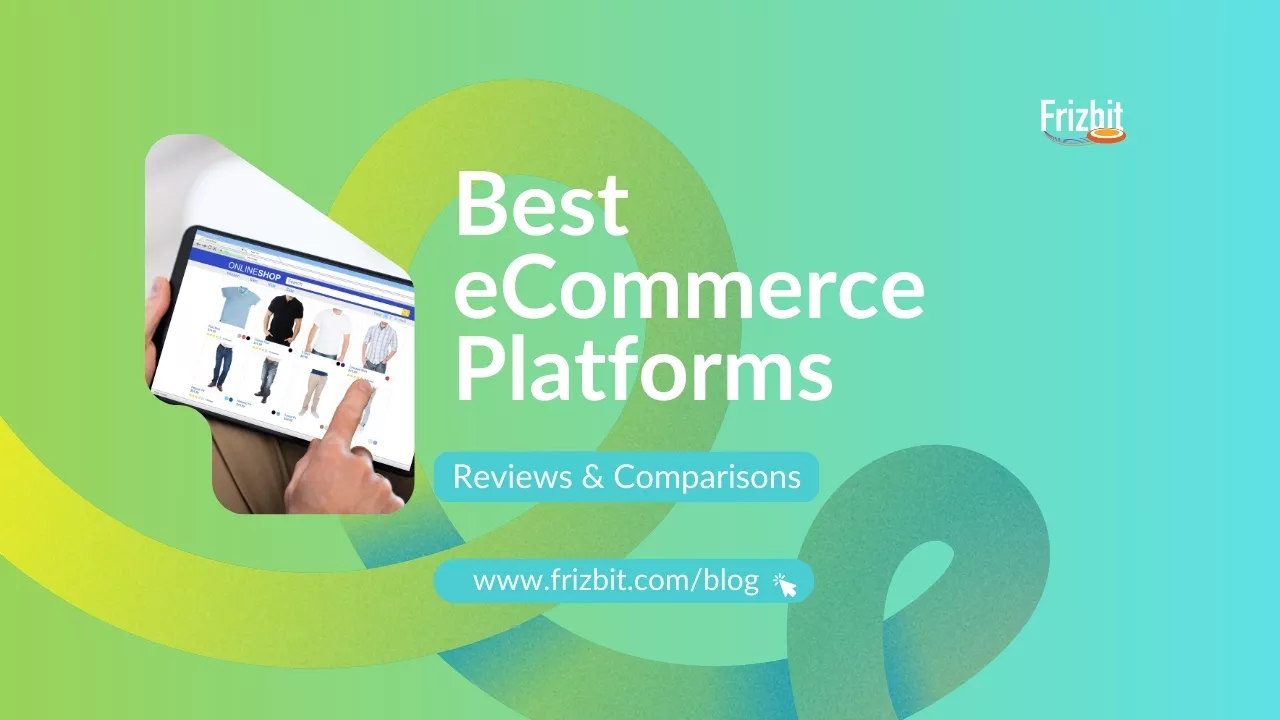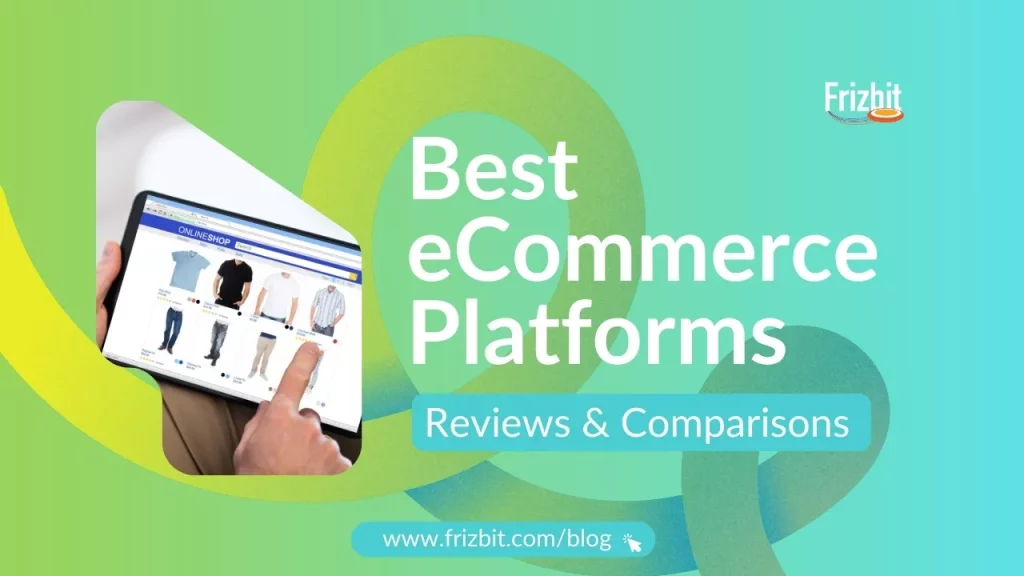
Are you someone that wants to build an eCommerce platform for your business? Well, you found the right blog then – Keep on reading to discover the best eCommerce platforms in 2024 now, and find out which one aligns best with your needs.
In 2023, global eCommerce sales skyrocketed to a mind-blowing $4.28 trillion, according to Statista. And guess what, the secret sauce behind this explosive growth? Yup, you guessed it – finding the perfect Commerce platform. The eCommerce industry is constantly evolving, and your platform should adapt to these changes, so that your business is not left behind.
Understanding the eCommerce platforms

Best eCommerce platforms | Source: Deposit
Ecommerce platforms are a software application that enables businesses to create, manage and operate online stores. But what kind of software programs are they providing in order to make all this possible?
These are the two main ones, Open-Source software and SaaS software. Depending on the situation of your company (size, budget, functions, …), one suits your business better than the other.
In this article, we will explain the main differences between them, so you choosing among the best eCommerce platforms becomes an easy task.
SaaS software vs Open-Source software:
Use a SaaS software program for a fully managed hosting service
SaaS software programs, often known as hosted solutions, are programs fully managed platforms provided by third-party vendors. The provider will be in charge of everything from hosting to security, freeing you from the burden of technical maintenance. Thanks to the plug-and-play approach, building your website will cost you only minimal upfront investment thanks to their user-friendly interface with built-in templates and features.
Use an Open-Source platform to seek differentiation
On the other hand, Open-Source software is usually a free platform which provides you direct access to the source code to modify and tailor your online store to meet your specific and complex needs. If you’re seeking to differentiate your business in a crowded market, then this would be your go-to option. This solution typically comes with a vibrant community of developers and users, offering support, resources, and many extensions and plugins to enhance your functionality.
Again, the choice between Open-Source eCommerce platforms and SaaS solutions depends on your unique business needs, goals, and resources.
What qualities do the best eCommerce platforms have?

Best eCommerce platforms | Source: Deposit
For us, it’s clear: Your platform should not leave any features and functions that would make your online presence optimal behind.
We made you a list with the essential elements and attributes your eCommerce platform needs to have:
- User-friendly interface: Creating your web can consume a lot of time and effort, and can be expensive, too. So, ensuring that both customers and administrators can navigate through the platform effortlessly, without the need of a development team to build a web, it’s really important.
- Integration Capabilities: At the end, the eCommerce platform is just a base, we will need extensions to optimise our online business operations. Does the platform have a seamless integration of third-party services, software solutions with email marketing, CRM systems, etc.? Offering flexible incorporation options will streamline workflows.
- Product and inventory management: You want to be provided with robust management aspects allowing you to control and organise your product catalogue easily, so it’s better to adapt to the changing market demands. Track the inventory levels with automatic updates, and handle orders successfully.
- Pricing: You may have a lower or higher budget, for every case there are different options and fees. The platform may be free but taking into account that you will have to integrate more services that require add-up costs, it might turn out more expensive than what you thought. So, consider if it’s better to pay for a subscription or not, for the features and assistance you may want.
- Scalability and customisation: if the platform doesn’t allow you to grow your business more, then you might want to find another one. Most platforms have a limited number of features and functionalities, so having customisation capabilities empowers your online presence to have unique branding, marketing strategies to foster differentiation and long-term success.
Top 7 best eCommerce platforms 2024 comparisons table
Have a look on this comparison table with all the 7 best eCommerce platforms to build your online store!
PLATFORM | MONTHLY PLAN | USER-FRIENDLY INTERFACE | TYPES OF BUSINESSES | THIRD-PARTY INTEGRATIONS |
| WooCommerce | FREE | ✔️ | Medium-large | ✔️ |
| PrestaShop | FREE | ✔️ | Medium-large | ✔️ |
| Shopify | 27€ (basic) | ✔️ | All 3 | ✔️ |
| BigCommerce | 29$ | ✔️ | Medium-large | ✔️ |
| VTEX | Flexible | ✔️ | Medium-large | ✔️ |
| Magento | FREE | ✔️ | Large | ✔️ |
| Salesforce CC | Flexible | ✔️ | All 3 | ✔️ |
In this guide, we’ll explore some of the best eCommerce platforms to help you make the right decision.
1. WooCommerce
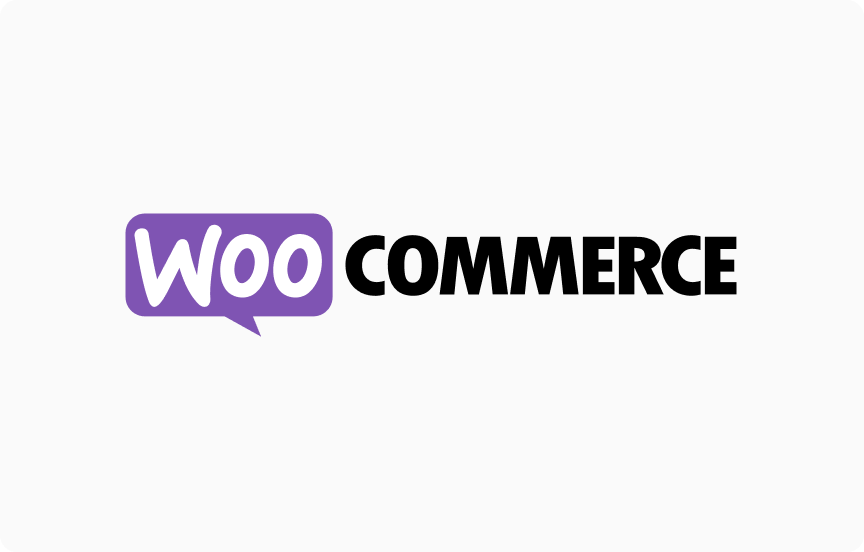
Best eCommerce platforms | Source: WooCommerce
Among the best eCommerce platforms we have WooCommerce, is one of the largest platforms, built on WordPress, holding a major part of the eCommerce market share in the World. And, it’s free to download!
If you’re searching for ultimate control and flexibility, then this one’s for you. WooCommerce is an open-source eCommerce platform, which means that you will have unrestricted access to the website’s underlying code. With its limitless customisation features, you will be able to design your website however you desire.
Its ability to seamlessly integrate with thousands of plugins and themes, allows owners to increase their broad range of functionalities, ideal for medium or large companies, but taking into consideration that some extension attributes have extra charge costs.
Nonetheless, learning how to properly handle all this content and information can be overwhelming. For this reason, WooCommerce offers community support with wide tutorials and guides to set up and run your online website efficiently. One of the best features of being a plugin with WordPress in this platform is the advanced SEO capabilities available, it will help you attract more visitors effortlessly.
| ADVANTAGES | DISADVANTAGES |
| Free Platform | Limited scalability |
| Highly customisable with unique designs and integrations | Many extensions and plugins require additional costs |
| User-friendly interface including guides and tutorials | Limited Customer Support, may require a development team |
| Source code available |
2. PrestaShop
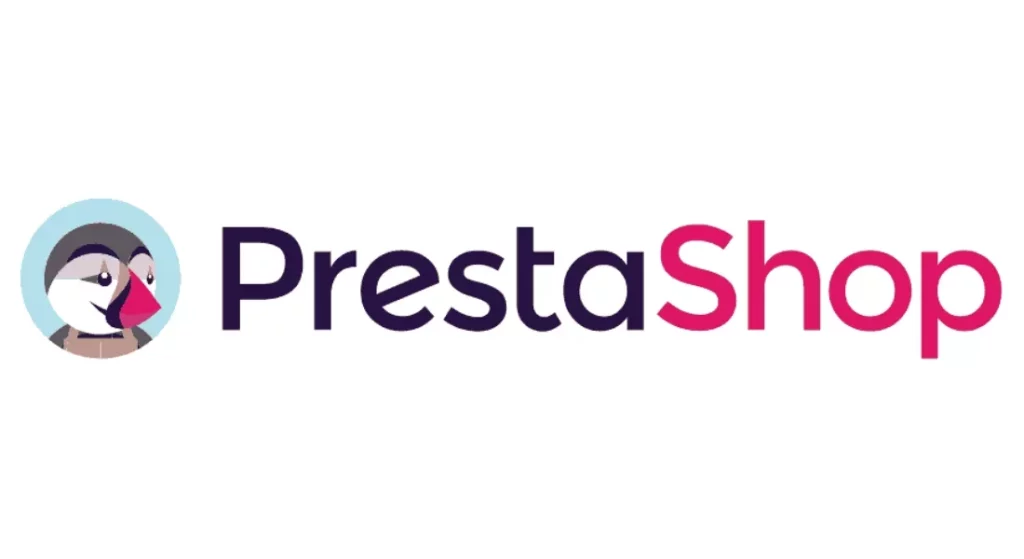
Best eCommerce platforms | Source: PrestaShop
Prestashop is another popular, flexible and scalable open-source platform, available in more than 65 international languages and currencies. Though it is free, it provides a rich variety of themes and add-on features. Since it is an open-source, you can use the codes freely and modify your website as you please.
With its user-friendly back-end interface, designing a basic online store is more than enough. Some of the features that they include are automated email follow-ups, coupons, order tracking and more useful inbuilt features. If you are a growing business or a big company that needs to handle big content, Prestashop can integrate with third-party apps to satisfy all your needs.
PrestaShop owns secure and reliable payment gateways like PayPal or Google Checkout, so no need to worry about frauds. They also provide tools such as SEO optimisation and a community to give you extra support.
Even though the platform is free, you have to take into consideration that there are many functionalities and extensions that require add-up costs, and some of them are quite costly. Also, you need to find a great hosting service to avoid issues in the website, if you desire you can buy “PrestaShop Ready” as a hosted option.
This platform might require a more professional technical team to develop a complex design, since some updates and modifications are hard to build if you don’t have any previous knowledge or experience.
| ADVANTAGES | DISADVANTAGES |
| Free Platform | Limited of free designs and themes |
| Available in more than 65 languages and currencies | Extensions are costly |
| user-friendly interface | Requires a good hosting service |
| Advanced features with SEO |
3. Shopify

Best eCommerce platforms | Source: Shopify
Shopify is becoming one of the most popular and established eCommerce platforms in the market right now. Most importantly, they are one of the few options available that suits all three kinds of businesses – small, medium and large companies.
Shopify is a SaaS eCommerce platform, with its own subscription fee that varies depending on the plan you choose, it goes from the most basic one to a customised pricing for the Shopify Plus option.
With its vast collection of designs and templates, building your ideal website for your business has become really fast and simple thanks to their drag-and-drop interface. Allowing users that have no base knowledge on coding, to freely create their own web browser. This hosted solution will save you from worrying about managing servers and technical aspects, and if you find any trouble mid-process, you can ask directly to their 24/7 Customer Support service for help assistance.
One of Shopify’s greatest strengths lies in its all-inclusive nature, encompassing everything essential for your eCommerce enterprise, from storefront design to performance analytics and content marketing capabilities. To increase functionality, you will find more than 8000 free and paid sources in the Shopify App Store.
Moreover, Shopify accepts two main ways of payment, one of them is through third-party payments like PayPal, and the other one is with their own Shopify Payment method, which is free of transaction fees, except for the “Starter Plan”
| ADVANTAGES | DISADVANTAGES |
| Hosted service for users with no coding experience | Shopify Payment is not available in all countries and will have to pay fees |
| Suitable for all types of businesses | Pricing can get expensive |
| User-friendly interface with drag-and-drop option | Limited themes and some features require you to know Liquid Language (Shopfy’s coding language) |
| 24/7 customer support | |
| No transaction fee with Shopify Payment |
4. BigCommerce
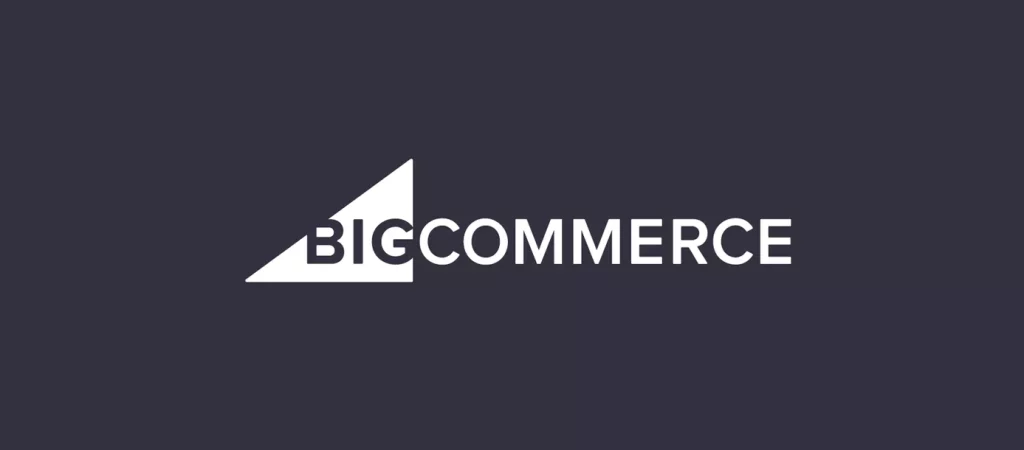
Best eCommerce platforms | Source: BigCommerce
Just like Shopify, BigCommerce also integrates their own software that allows users like you to customise your website in an easy mode. Offering an all-in-one solution that includes many options such as management orders, inventory tracking levels, payment methods, and more features.
If your business is selling a wide range of products, then you might want to consider this platform that can handle heavy content thanks to the unlimited file storage available. Its buyer-centric approach allows you to seamlessly manage your customer relationship and marketing efforts for a holistic eCommerce experience. But, keep in mind that email marketing tools are not included, so you will have to purchase third-party apps to add these channels.
BigCommerce is the perfect option if you are a large or fast-growing business, this platform will help you on sales taxes and automated shipping thanks to their tons of built-in features. With this being said, it can be hard for small companies to adapt themselves due to the complexity and advanced set of features, and most of the themes available are quite expensive and with limited options of customisation.
They have different plans to choose from starting from the price of 39 dollars, transaction fees changes depending on the plan and there’s an annual sales threshold, where if you exceed the amount of sales per year, your plan will be automatically upgraded to a higher plan. If you’re not sure which one is the right one for you, request a free trial to start with and ask for any help with their 24/7 customer support.
| ADVANTAGES | DISADVANTAGES |
| Built-in of great features including SEO | More suitable for medium and large companies |
| Scalable platform with a 15 days free trial | Fewer themes and design options than other platforms |
| Hosted solution with intuitive interface | Increase in costs if exceeds annual sales threshold |
| 24/7 customer support |
5. VTEX
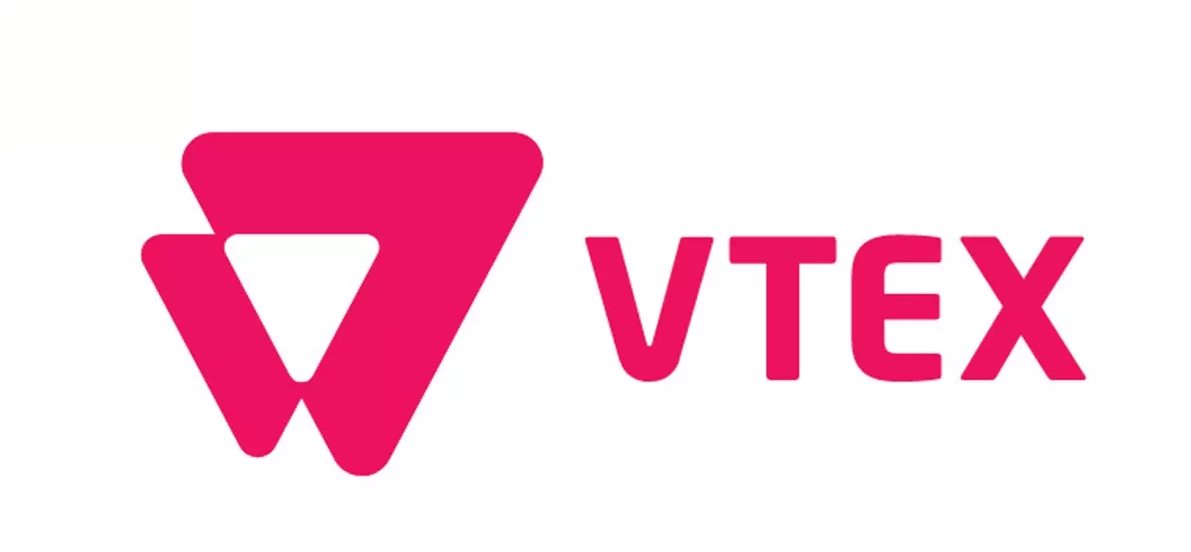
Best eCommerce platforms | Source: VTEX
VTEX is a cloud-based eCommerce platform with an all-in-one solution, it’s ideal for retail businesses of all sizes, providing a powerful platform to manage their operations.
With their intuitive interface, it is really simple to set up your online store, including product catalogue management, order management, and content management. Just like the previous platform mentioned, VTEX also provides the capability to integrate with third-party apps and channels to optimise your eCommerce, covering all functionalities not included in the platform with plugins.
This platform offers a template called “My store”, where you can add all the features and configurations necessary to build your shop with highly customisable options. For any change in the design interface, you might need help from a development team, except for the checkout interface which is trademarked and simply cannot be changed without the approval of VTEX.
VTEX is a robust solution for omnichannel sales, you can create your own marketplace and add all your product information on any sales channel virtually. They include built-in integrations such as POS (Points-of-Sale) systems, and BOPS (Buy Online Pick Up in Store) options. And if you are in Latin America, this platform already includes the top payment gateways such as Openpay, Mercado Pago, and more, that other top eCommerce platforms lack.
They have a revenue-sharing pricing model, so the usage fees are based on a part of the revenues generated by your business.
| ADVANTAGES | DISADVANTAGES |
| User-friendly interface with advanced features | Pricing can get expensive based on the profit made |
| Scalable platform suitable for all kinds of businesses | Limited themes and design options |
| Top Latin American payment gateways | Complex set up for small businesses, might a development team |
| POS systems |
6. Magento (Adobe Commerce)
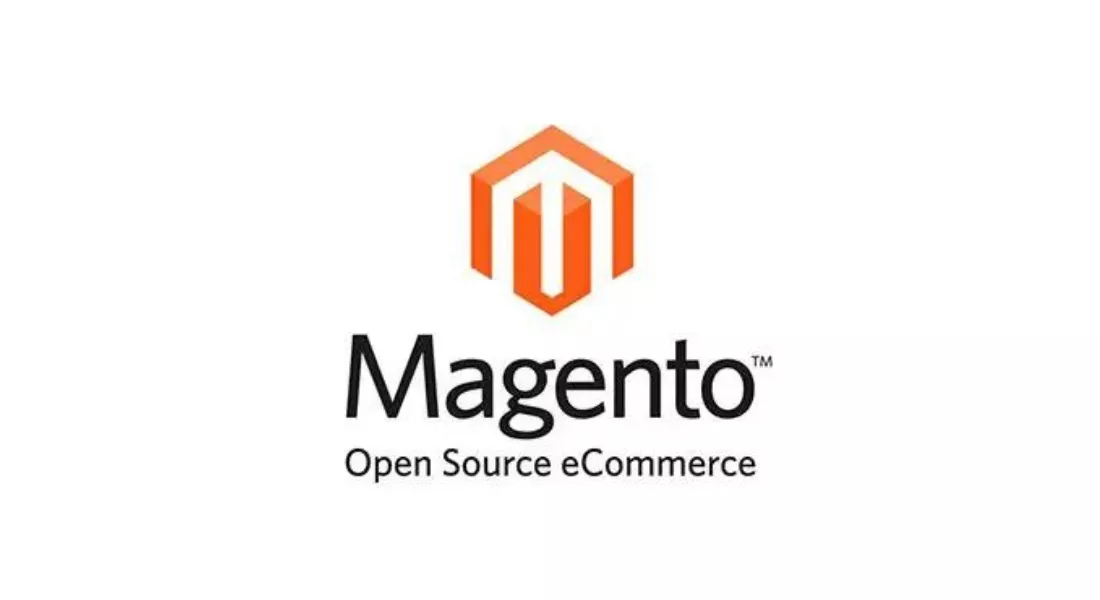
Best eCommerce platforms | Source: Magento
Following the list on the best eCommerce platforms we have Magento.
Are you a large company looking for 100% tailored solution? Magento must be the solution then. Thanks to the open code source, you can design your ideal online store, with a great capacity to manage your products and transactions.
Magento offers an extended variety of plugins to build the best store possible, the platform is adapted for large businesses with complex needs to scale up, with highly customisable and flexible features and characteristics. Their add-ons and widgets are constantly updated and evolved to optimise your eCommerce.
However, the process of building the online store can be very complex and it incurs extra costs to learn and run the site. That’s why Magento offers a community with a development team that provides you with solutions when working on the platform.
Another reason why this platform is not suitable for small businesses is that it requires a good and dedicated hosting service for optimal performance. You will need to configure a good server to avoid crashes and other issues, and this can get very costly and time-consuming.
Overall, Magento can satisfy all your complex requirements due to its flexibility. This platform has a big implication for omnichannel experiences as well, and offers a consistent customer experience with omnichannel support and SEO capabilities.
| ADVANTAGES | DISADVANTAGES |
| Free and scalable platform | Not suitable for small businesses |
| Highly customisable for complex needs | Integrations and support is expensive |
| Intuitive interface with advanced features | Requires a good hosting service |
| Advanced features with SEO |
7. Salesforce Commerce Cloud (Demandware)
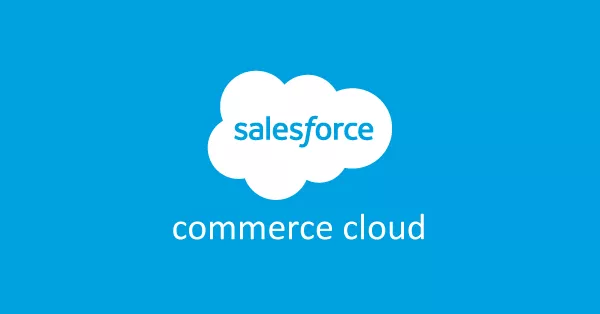
Best eCommerce platforms | Source: Salesforce commerce cloud
Salesforce came up with their own cloud-based commerce platform, sharing a software that helps businesses to change, scale and grow. StoreFront Reference Architecture is a user-friendly interface that allows you to build and design your website easily.
This platform has integrated solutions to manage store innovation, streamline sales and operations, inventory management and more, all in one place. Salesforce commerce cloud offers different tools to help you improve your business presence, including a robust marketing toolkit to manage all the content, shipping tools and more to reduce the time and effort required to manage an eCommerce operations and to have a unified shopping experience.
Salesforce cloud commerce can integrate with plugins and third-party, but adding extensions come with extra costs. Although there are many tools and features to optimise your online store, it still can be a little complex and it might require expertise since it has a steep learning curve.
If you find any trouble when building your web, contact their 24/7 customer support since they have full access to your database and inventory to help you with all needs accurately. The costs might get expensive if you are a small business, especially those who are just starting out.
| ADVANTAGES | DISADVANTAGES |
| User-friendly interface with advanced features | Pricing can be expensive |
| Many built-in integrations and features | Limited themes and design options |
| 24/7 customer support | Might require an expertise to build complex features |
Best eCommerce platform for small business
This guide has proved that not all eCommerce platforms are suitable for small businesses. To enhance the efficiency of your online store, you need to choose carefully which platform allows you to optimise your business.
It’s true that an open-source platform can be profitable if your budget is low, but take into consideration that these free platforms require a development team that understands how to build everything from scratch, so sooner or later you will end up paying more for a technical crew and extensions that your store will be in need of. Instead, an already built-in software with an intuitive interface with easy drag-and-drop will save you much more time and energy.
Here is the recap of the best eCommerce platform for small business:
| SHOPIFY | SALESFORCE COMMERCE CLOUD |
| SaaS software | Own cloud base software |
| 27€ basic plan | Flexible price plan |
| Shopify payment is free of transaction fees | Associated fee from payment gateways |
| User-friendly interface with drag-and-drop | User-friendly interface |
| 24/7 customer support | 24/7 customer support |
Best eCommerce platform for SEO
Having robust SEO capabilities on your eCommerce platform will definitely enhance the visibility of your online store in searching engine results. So, we made a list of the best eCommerce platforms for SEO:
- SHOPIFY: Shopify provides built-in SEO features, including customisable title tags, meta descriptions, and URLs. It also offers SEO-friendly themes and apps to further enhance optimization.
- WOOCOMMERCE: As a plugin for WordPress, WooCommerce benefits from WordPress’s strong SEO foundation. It offers various SEO plugins and tools to optimise product pages, metadata, and URLs.
- MAGENTO: Magento offers extensive SEO capabilities, allowing users to customise metadata, URLs, and other on-site elements. Additionally, Magento supports SEO-friendly features like canonical tags and structured data markup.
- BIGCOMMERCE: BigCommerce includes built-in SEO features such as customizable URLs, meta tags, and sitemaps. It also provides tools for optimising product pages and managing redirects.
- PRESTASHOP: PrestaShop offers robust SEO tools, including customizable URLs, meta tags, canonical URLs, and automatic sitemap generation, enabling merchants to optimise their online stores for search engines and drive organic traffic effectively.
- VTEX: VTEX provides some built-in SEO features, such as customizable URLs, meta tags, and structured data markup, its SEO capabilities may not be as extensive as those of other platforms like Shopify or Magento.
- SALESFORCE COMMERCE CLOUD: Formerly known as DemandWare, offers built-in SEO capabilities such as customizable URLs, meta tags, canonical URLs, and XML sitemap generation to enhance search engine visibility and attract organic traffic to online stores.
The best eCommerce platforms + Frizbit
Now that we’ve looked into the some of the best eCommerce platforms out there in the market, it’s time to leverage their potential and combine it with marketing automation solutions that help you not only bring your customers back, but also transform them into loyal customers.
Frizbit is an eCommerce cross-channel Marketing Automation platform that can help your business to generate more sales and revenues by sending hyper-personalised messages based on user behaviour through Web Push notifications, Email Marketing, SMS campaign, WhatsApp channels, and Product Recommendations with AI.
Add our service to your eCommerce platform to bring your customers back, retarget both registered and non-registered users on auto-pilot in every stage of the purchasing funnel.
Integrate with Frizbit in just 1-click
If you are looking for a cross-channel platform solution to integrate seamlessly with your preferred eCommerce platform, at Frizbit we integrate with:
- WordPress (CMS)
- WooCommerce (eCommerce platform)
- Google Tag Manager (Data Integration)
- JavaScript (Basic Integration)
- VTEX (eCommerce platform)
- PrestaShop (eCommerce platform)
- Magento (eCommerce platform)
- Shopify (eCommerce platform)
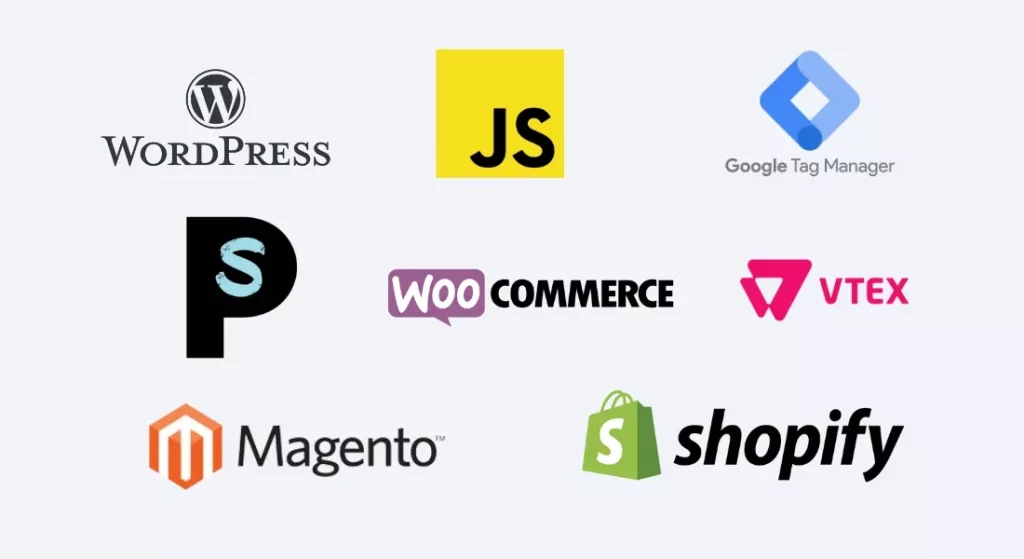
Need extra help?
Enquire with our team today for more information and request a FREE demo and get a customed plan to cater your business needs.
